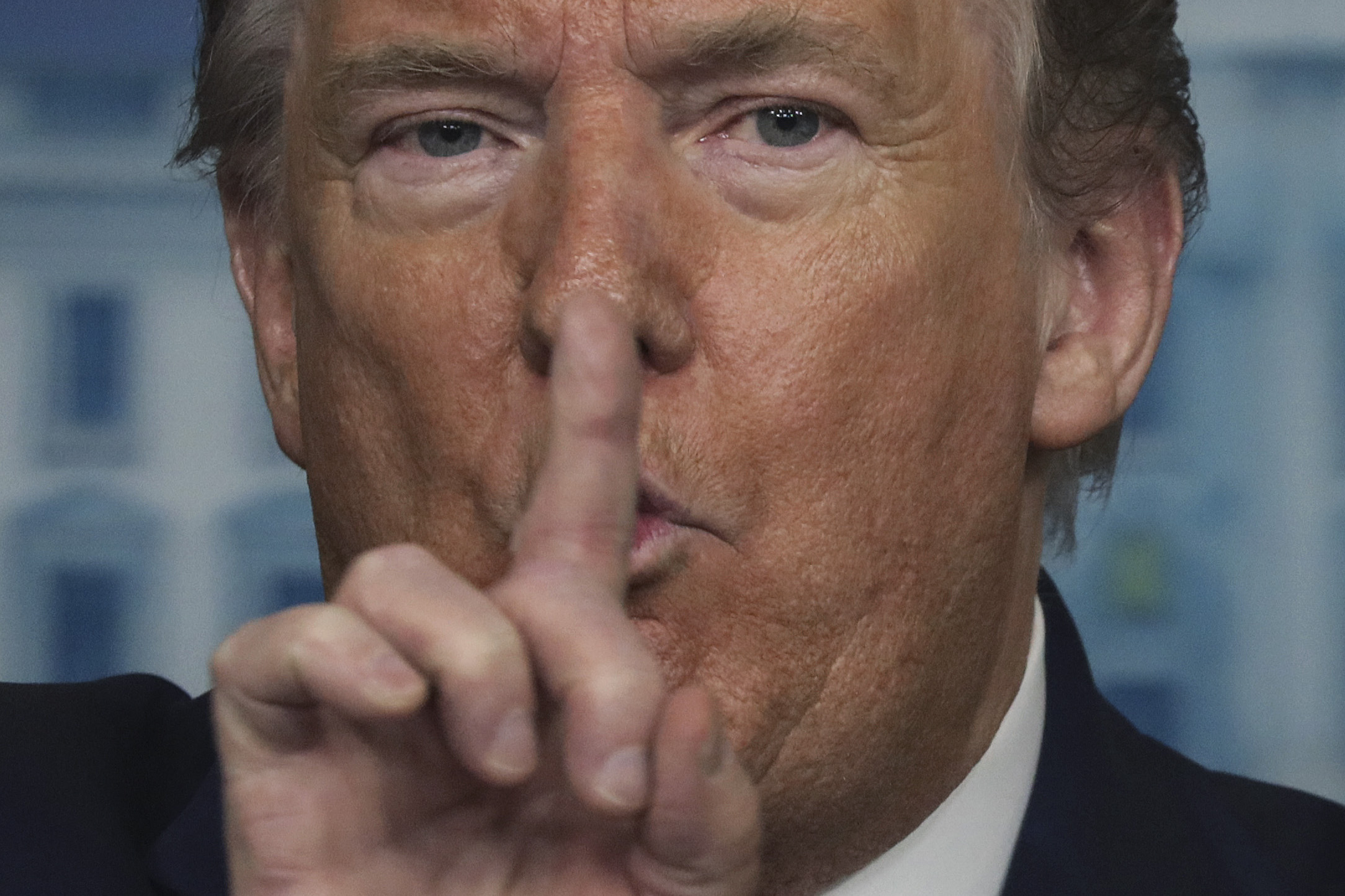The fallacies of freedom in Twitter’s Trump trauma
The debate about whether corporate digital media should be allowed to silence certain voices has exposed the hypocrisy of championing protections – but only for those who say what you like.
Author:
4 February 2021

If markets guarantee our freedom, why is it a problem when they muzzle right-wing politicians?
Donald Trump’s removal from Twitter and other corporate digital media platforms (the word “social” being problematic because it denies the corporate nature of these media) has been denounced by many as a violation of his freedom of speech. Predictably, his own supporters are enraged by this violation of his basic liberties. Others have defended it, insisting that he should be prevented from spreading untruths meant to trigger the sort of violence his supporters visited on the United States Capitol.
On the surface, this seems to be a debate about the limits of free speech, about when an expression of opinion becomes falsely crying “fire” in a crowded theatre. But there is another issue lurking behind this argument that seems to have been noticed barely, if at all.
Related article:
The voices on the right and in the centre defending Trump’s right to be heard belong to loud defenders of the market and the rights of private owners. They all denounce “socialism”, which generally means any law or policy designed to ensure the economy works in ways that make life more bearable for poor people. We can safely assume that many of the South Africans who worship markets and denounce every attempt to regulate them in order to reduce inequality were among those who felt that Twitter had no business silencing Trump.
But Twitter and the other corporate digital media outlets that refuse to host Trump are not governments – they are privately owned, for-profit companies. According to the ideology of the market, only governments can deprive us of freedom. Companies cannot because they supposedly have no power to force others to do anything: in a market economy, if you don’t like company A, you can take your business to company B.
Market ideologues also often insist that companies are no different to individual citizens. It is this thinking that was used to remove most of the controls on political funding in America. The US Supreme Court ruled that to tell companies they could not give as much money as they wish to a candidate was to deny them the right to express themselves, as individuals do. In this view, markets are sources of freedom because they allow us to trade as we please.
Unfettered freedom
The belief that media should not be subjected to government rules is shared even by many who might agree that the state should regulate companies which exploit workers and consumers or despoil the environment. They might agree that media companies are often purveyors of ideology rather than information, of prejudice as well as news. But telling them what they cannot do, they insist, is the route to tyranny.
If you hold this view, corporate digital media companies are surely entitled to muzzle anyone they choose to silence. Twitter and the others are selling a service – even if it is an unusual one in that customers do not pay because the company uses them to make its money in other ways. But the arrangement between Trump and the company is essentially a contract, and no one is meant to be forced to enter into a contract. Twitter is surely no more obliged to keep him on as a user of its product than a restaurant is forced to admit a person it considers unruly? To tell corporate digital media companies what they can and cannot do is surely to deprive them of freedom? The only way to prevent them silencing people is to regulate them – which, according to market ideology, is to curtail their liberty.
Related article:
Of course, many of us don’t see companies as people. We realise that large companies can have great power and that, once they get to a particular size, they can threaten freedoms unless they are regulated in ways that protect the public good. Corporate digital media companies and those which make their money out of information technology are obvious examples. They behave rather as factories did at the beginning of the Industrial Revolution, using their freedom to deprive people of rights in the pursuit of profit.
They also subvert democracy in ways that are often loudly cheered by those who insist Trump was deprived of his rights. Zoom has banned Palestinian solidarity events because it does not like someone who participates in them. Facebook often muzzles supporters of the Palestinian cause, while those who hurl racial abuse at Palestinians are not silenced. There are now moves to ban people who use the word “Zionist” when they criticise the Israeli state, which is a little like banning people from using the word “monarchist” to describe the ideology of the Swazi state.
Defining the rules
So, there is a strong argument for regulating corporate digital media in a variety of ways – the solution that German Chancellor Angela Merkel, among others, wants. Rules that control when and how they can bar people from their platforms might be a part of this, although most people would probably agree that no one should be allowed to say whatever they like on corporate digital media, since this might include incitement to violence and crude expressions of prejudice that could lead to harm.
A credible rule would presumably allow everyone to use the platform, but it would also prescribe limits to what people can say. Even then, it would be difficult to come up with rules that everyone agrees will prevent harm rather than simply silence unpopular opinions. But the voices that are now calling for rules to protect Trump do need to understand that credible rules would also protect Palestinian activists and people who use the word “Zionist” in less than flattering ways.
Related article:
While this seems logical, it is not at all certain that any of the voices calling for Trump’s rights to be protected would accept it – least of all Merkel, whose country is particularly active in suppressing Palestinian voices. It is crucial that everyone who wants free speech on corporate digital media to be protected by law, whether from the Left or the Right, must realise that you cannot protect those who say things you like without extending the same protections to those who say things you hate to hear. And, if controls on corporate digital media are acceptable as long as they protect but do not suppress speech, so are similar rules for other media.
Beyond this, it is surely a contradiction to want to regulate corporate digital media but to reject measures to make markets serve the common good. If Twitter can be forced to protect Trump, private medical providers can be forced to put patients’ rights ahead of profit, and mines and factories can be forced not to pollute the air and water. And it is acceptable in a country with a history of racial – and gender – domination to enact laws and policies that open up opportunities for the victims of historical bias.
This, too, seems logical. But a look at the policy debate in this country and many others shows it is hardly automatic. There is no shortage of voices who insist that expressions of racial or gender prejudice must be protected by law, even if this means regulating private companies, but who greet each and every attempt to use the law to create a fairer society as an onslaught on freedom. Consistency is not something peddlers of prejudice value, but it is a value we should demand from them.



